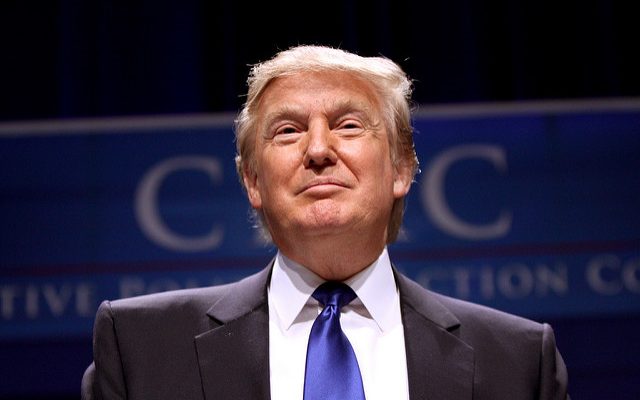 "Donald Trump" Courtesy of [Gage Skidmore via Flickr]
"Donald Trump" Courtesy of [Gage Skidmore via Flickr]
Elections
Sorry Trump, but “Make America Great Again” Isn’t a Platform
With today’s constant access to news and commentary on law, policy, and legislation, voters expect candidates to be “policy wonks.” Bernie Sanders was commended during his presidential bid for his strong socio-economic policy reform proposals. Speaker Paul Ryan is lauded for squeezing out a laborious policy plan while a loud presidential election overshadows congressional action. Yet somehow Donald Trump, the presumptive Republican nominee for president, is running a nearly policy-free campaign.
Now, let’s give this a fair appraisal; Donald Trump has seven published platform points. This pales in comparison to Hillary Clinton’s 32 published platform points. Trump has even published less than libertarian candidate Gary Johnson’s 13 points.
While this might be excusable if his policy proposals were comprehensive and diligently crafted, they are not. Point for point, Donald Trump offers contradictory opinions, fosters disdain for Obama-era policies without offering alternatives, and proposes costly measures without revenue-building measures to offset them. Here are two of the most jarringly unrefined “policies”:
Immigration Reform/The Wall
While Donald Trump claims that his infamous wall along the Mexican-U.S. border will cost $8 billion, construction economists estimate that it will cost at least $25 billion, not including maintenance and surveillance.
Though this won’t be a superfluous expense because Trump promises that Mexico will pay for it. Trump proposes banning undocumented immigrants from being able to wire money to Mexico (an estimated $24 billion per year.) He will then tell Mexico that in order to resume wire payments, that it has to pay for the wall.
However there are two jarring flaws in this plan. Firstly, individuals wiring money to Mexico are not funding the government, but rather family still living in Mexico. Secondly, Mexico–a deeply fragile state currently–would not prioritize $24 billion in diffused money to families over a $25+ billion state-funded project.
Though this isn’t Trump’s only strikingly expensive proposal without a funding plan. Trump also proposes we triple the number of Immigration and Customs Enforcement agents, each with an annual salary of $30,000-$50,000.
Many of Trump’s immigration reform tactics are rooted in isolationist sentiments and labor practices, disguised as job creation. He proposes a temporary bar on granting green cards to force employers to hire authorized citizens, expresses persistent anti-trade sentiments, and falsely cites illegal immigrants as a large source of unemployment for authorized citizens.
To be clear, according to Pew Research unauthorized immigrants only comprise about 5.1 percent of the workforce and work predominantly in occupations like farming, maintenance, and construction. Even if these were widely desirable and growing occupations in the U.S.–which they are not–authorized citizens reclaiming these jobs would not significantly revitalize the middle class as Trump claims it could.
Healthcare Reform
Donald Trump’s ideas on healthcare are some of his most un-established and contradictory. The system which Trump describes is most similar to a single-payer healthcare system. Trump ensures that everybody will have insurance and that the government will pay for it. However he also promises a large, competitive private market.
Above all else, he promises the repeal of Obamacare. However, consider that the Affordable Care Act, a comprehensive multi-thousand page bill, extends healthcare coverage to more than 12 million people. Trump’s healthcare platform contrarily offers little more than supporting the sale 0f health insurance across state lines, support for health savings accounts, and a move to block-granting Medicaid to states.
He also suggests that those who cannot afford private health insurance plans should enroll in Medicaid. However, presently a family of four must make an average of $20-$35k to qualify. Further, in many states income alone doesn’t qualify a family.
Trump would have to support Medicaid expansion to bridge the gap between the current low income Medicaid threshold and the income level families who would strain to afford private insurance. This is contrary to his proposition to block-grant the program to states.
Trump acts as though by scapegoating immigrants and Obama-era policy, he can ignore how glaringly debt-inducing his proposals are. Holding executive power inevitably means holding vision for your party and country. It means planning to renovate, innovate, spend, and save all in future-minded consciousness. Ending each of your thoughts with “Make America Great Again” doesn’t invoke greatness from your policies, vision, or lack thereof.








Comments